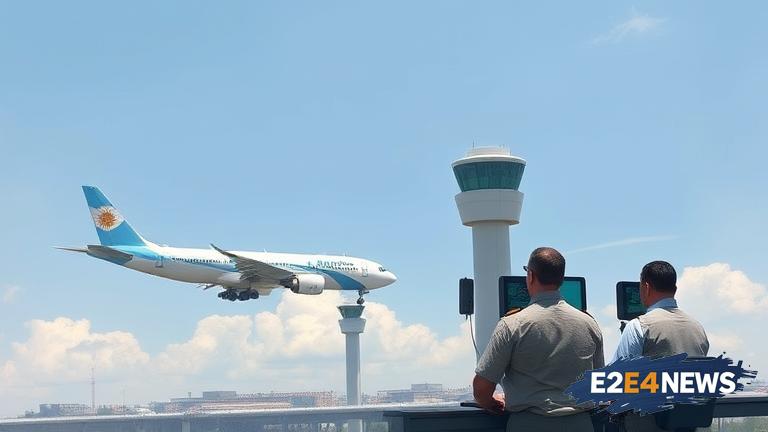A potentially disruptive strike by air traffic controllers in Argentina was suspended after the government intervened, ordering compulsory conciliation to resolve the dispute. The strike, which was set to begin on a recent day, would have affected air travel across the country. However, following an emergency meeting between government officials and union representatives, an agreement was reached to suspend the strike and enter into compulsory conciliation. The air traffic controllers were seeking improved working conditions, better pay, and increased staffing levels. The government’s decision to intervene was likely motivated by concerns over the potential economic impact of the strike. Argentina’s air travel industry is a significant contributor to the country’s economy, and a prolonged strike would have had far-reaching consequences. The strike was called by the Argentine Air Traffic Controllers Association, which represents over 300 air traffic controllers across the country. The union had been negotiating with the government for several months, but talks had broken down, leading to the strike announcement. The government’s order for compulsory conciliation means that both parties will be required to engage in mediated talks to resolve their differences. The conciliation process is expected to take several weeks, during which time the air traffic controllers will return to work. The strike suspension has been welcomed by airlines and travel companies, which had been bracing for the impact of the strike. However, the union has warned that if an agreement is not reached, the strike could be reinstated. The Argentine government has faced criticism in recent months over its handling of labor disputes, and the air traffic controllers’ strike is just one of several high-profile disputes currently underway. Despite the challenges, the government has expressed its commitment to finding a resolution to the dispute and avoiding further disruption to air travel. The air traffic controllers’ strike has highlighted the need for improved working conditions and increased investment in Argentina’s air travel infrastructure. The government has pledged to address these issues as part of the conciliation process. In the meantime, air travel in Argentina is expected to return to normal, with flights operating as scheduled. The strike suspension is a welcome relief for travelers and the air travel industry, but the underlying issues remain unresolved, and a long-term solution will be needed to prevent future disputes.
